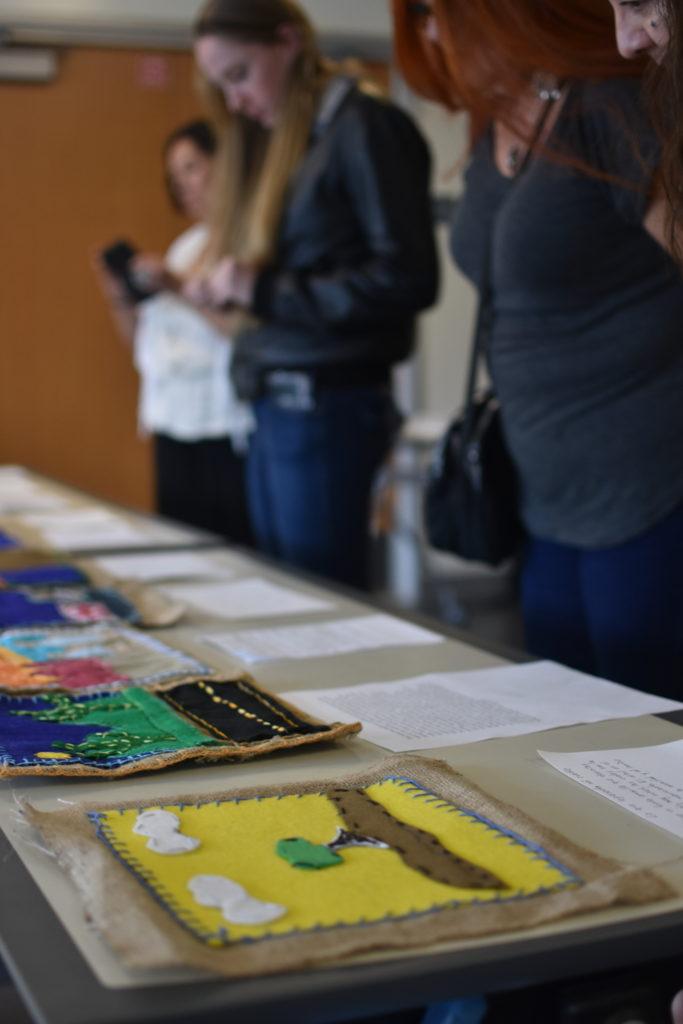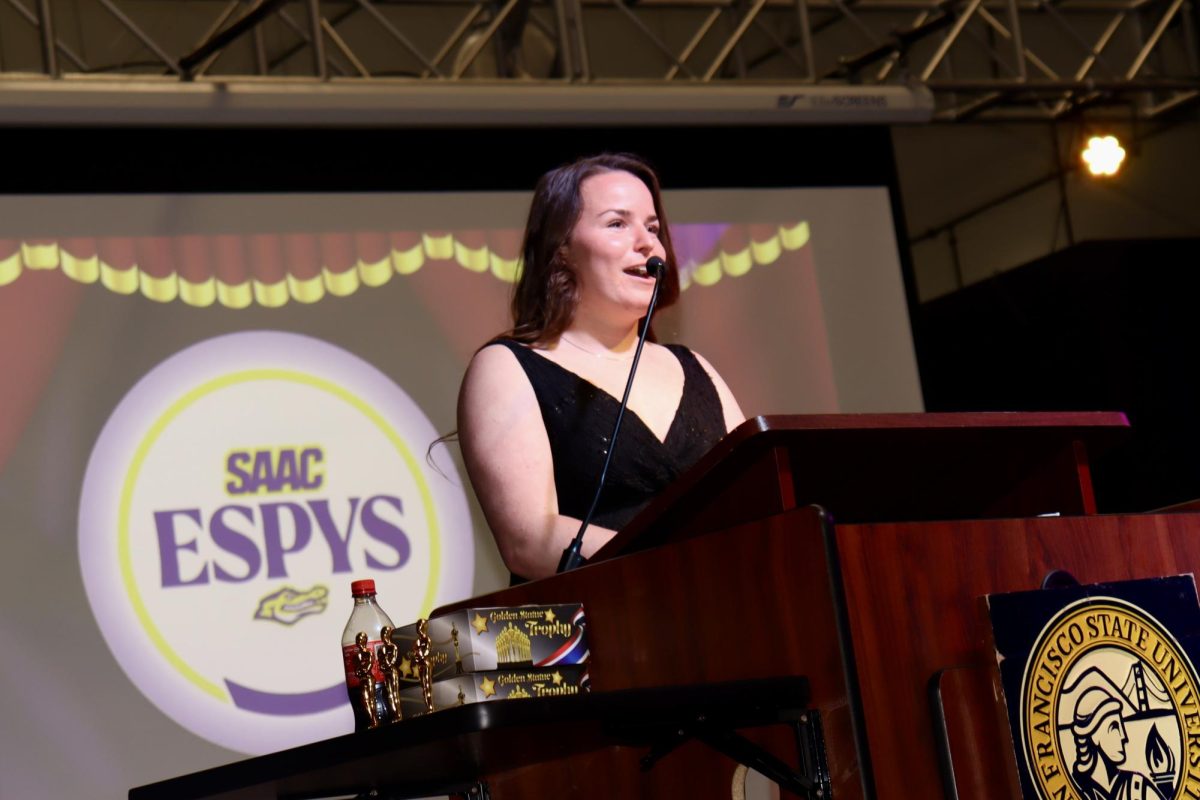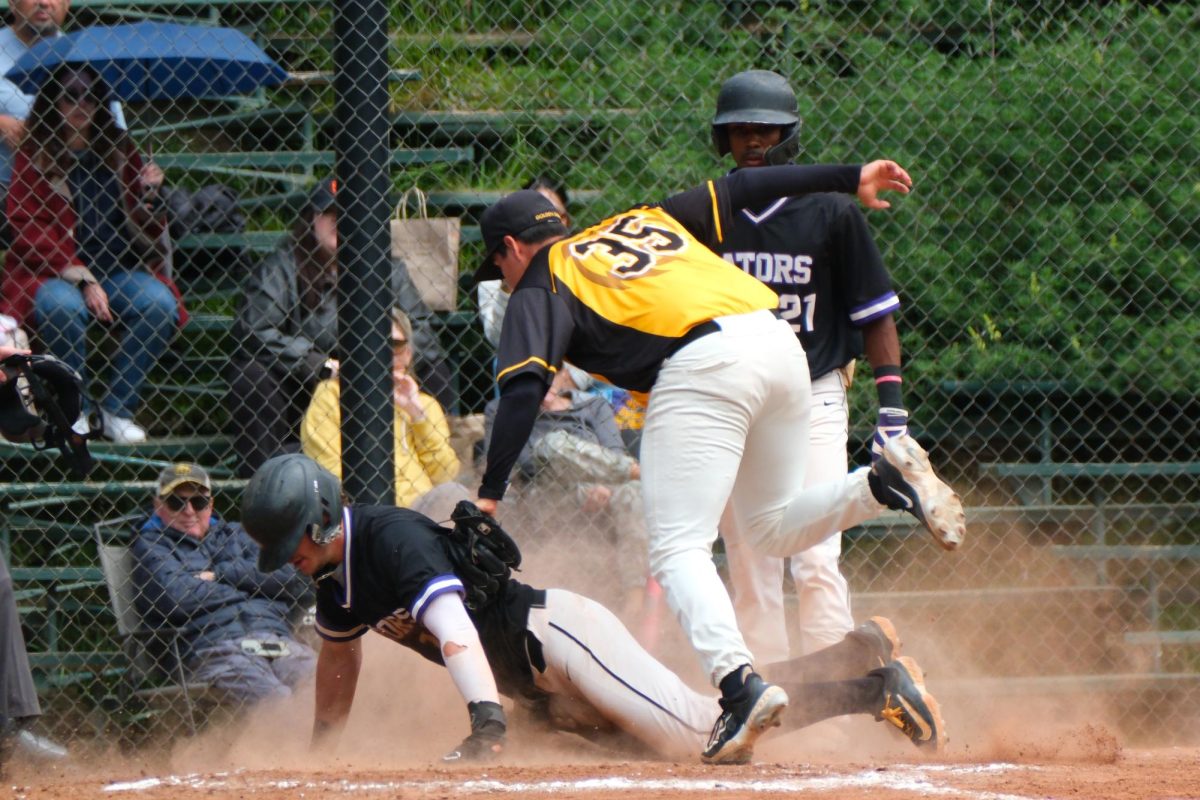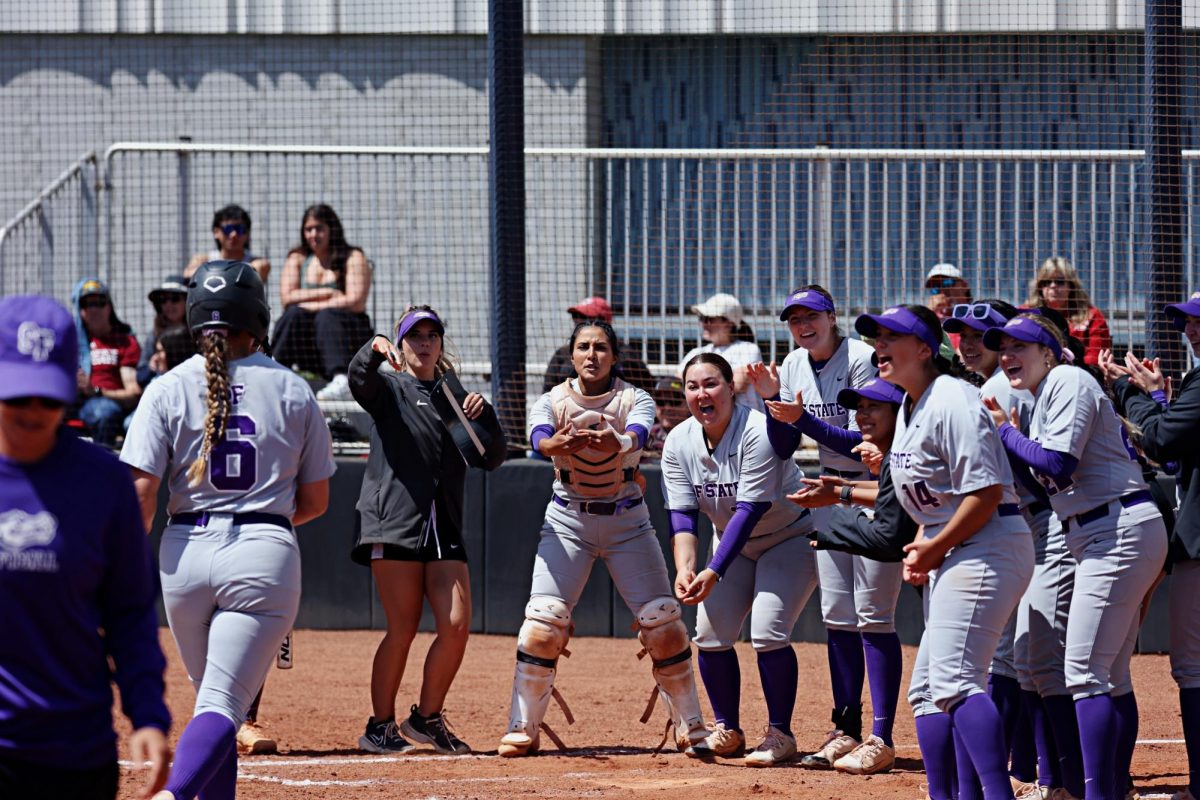Guests observe the arpilleras on display at the “Arpilleras: Crafts by Refugee Women” event in the Library events room on April 19, 2019. (LOLA CHASE/Golden Gate Xpress)
An international program visited SF State to discuss refugees and change the narrative behind their experiences.
Students, faculty and guests gathered in Room 121 of the J. Paul Leonard Library at 3:30 p.m. on Friday for the “Arpilleras: Crafts by Refugee Women” event. The event was put on by Professor Ana Luengo and her students in her seminar in literary movements and periods class. Bȧrbara Torres Baquedano, leader of “El Costurero,” a Germany-based humanitarian program for refugee women travelled to the event from Germany to discuss how she’s influencing women to create arpilleras, a Chilean form of art and resistance. According to Torres Baquedano, arpilleras are burlap works of art which showcase individual life stories.
At the event, arpilleras made by both refugee women and students in Luengo’s class illustrated their stories and struggles. The event also featured scholar and poet speakers discussing refugee and immigrant stories.

Torres Baquedano spoke about how she gives refugee women from Afghanistan, Syria and the Ivory Coast, among other countries, a space to be creative while telling their stories through art. One arpillera made by an SF State student Marcela Portilla Loiza, who is part of Luengo’s class, showed contrasting images of an adobe house and San Francisco that represented where she came from and where she is now. the other side it was San Francisco.
Dr. Salama said to the crowd, “this is her. This division but also the desire to see the whole between two worlds.”
As an immigrant from Chile, Torres Baquedano relates to their experiences. The program is open to women refugees, and translators are present to assist Torres Baquedano with communication. Although there may be a language barrier, Torres Baquedano believes their shared experiences transcend language.
“One thing that we share is that I am also an immigrant and [had] similar experiences to them, so we have a common emotional language,” Torres Baquedano said.
According to Torres Baquedano, the program provides child care for the participating women so that they are able to focus on creating their arpilleras.
Through arpilleras, Torres Baquedano has created a space for refugee women to bond over similar refugee experiences and change the narrative surrounding refugee women.
“I think that it’s important that a refugee isn’t just a victim,” Torres Baquedano said. “[A refugee is] someone that has a lot to tell and plans to accomplish still, someone who is active.”
Torres Baquedano hopes to give the refugee women a sense of identity in creating their art.
The event also featured speakers that talked about their own knowledge and experience with refugees.
Dr. Olivia Albiero, assistant professor of Italian and German at SF State, spoke at the event. Albiero gave a presentation on German comic journalism and how it can be used to tell important refugee stories of escape, displacement and new beginnings.
According to Albiero, images can evoke empathy while at the same time showing tragedy that words may not be able to convey.
“These conversations about mass migrations and refugees are a part of our everyday life,” Albiero said.
Albiero described that she believes visual art has the power to change the narrative surrounding refugees and educate viewers.
“Sometimes I think that the only way that students have access to these events and the changes to our society is either through classes or through media,” Albiero said. “Not all students may be exposed to that through classes or media, so I think that these kinds of events actually help students to get a sense of how our society is changing.”
At the event, UC Berkeley student Lubna Safi recited her poetry about her experience being an immigrant and growing up Muslim and Arab in the U.S.
“The intersections in my life between my parents’ experiences—my parents are both immigrants—and my own experience growing up as second generation American [inspired me to write poetry],” Safi said.
In the future, Torres Baquedano hopes to open another program in her hometown of Chile to help its Haitian community.
An earlier version of this story referred to “El Costurero” as an art program open to all refugees when it is a humanitarian program open to only women. Additionally, the story referred to Barbara Torres Baquedano as Baquedano when she should be referred to as Torrest Baquedano. Additionally, the event was put on by professor Ana Luengo and her seminar class, not the Spanish department. Additionally, the arpillera described in the story was made by SF State student Marcela Portilla Loiza, not a refugee woman. Xpress regrets these errors.










